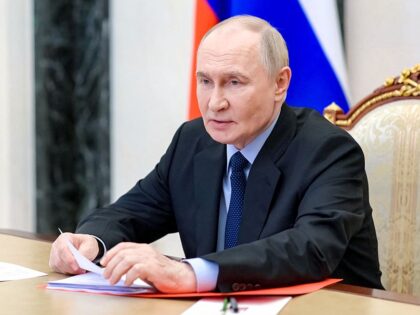
THREAD: russian war crimes in ukraine
LifeLine™ Media threads use our sophisticated algorithms to construct a thread around any topic you want, providing you with a detailed timeline, analysis, and related articles.
News Timeline


UKRAINE’S Doubts Stall Istanbul Peace Talks: Frustration Grows as Russia Holds Back
— Istanbul is set to host new Russia-Ukraine peace talks on Monday. The United States, United Kingdom, France, and Germany will also be at the table. Russia says its team will stay the same and ruled out any meeting between presidents.
Ukraine’s role remains unclear. Kyiv wants more openness before agreeing to join. They demand to see negotiation points ahead of time, but Russia refuses to share details until both sides meet face-to-face.
President Zelensky blasted Moscow’s approach. He said Russia is making sure the meetings go nowhere by hiding documents from Ukraine and Western allies.
General Keith Kellogg, President Trump’s envoy, noted that European security advisors will join this round for the first time. While Moscow welcomes their input, it insists that direct talks with Ukraine must stay at the center of any deal.

US President’s SHOCKING BLAST at Zelenskiy Signals Bold Ukraine Shake-UP
— The US President took aim at Ukrainian leader Volodymyr Zelenskiy, saying, “Everything out of his mouth causes problems.” This is a big change in how America deals with Ukraine. The comments come as the war with Russia drags on.
Experts say this harsh criticism could impact future military and money support for Ukraine. The President’s frustration with Zelenskiy’s choices and words suggests talks with Russia and Western allies are getting harder.
The remarks have stirred debate in the US and overseas. Some believe the President is finally being honest, while others fear it could hurt ties between the US and Ukraine.
This move hints that American policy may be shifting. The White House now seems to want clearer plans and better communication from its partners going forward.

— Japan Plans to Recognize Crypto Assets as Legal Financial Products. The government aims to formalize digital currencies within its financial laws by 2026, positioning Japan as a regional leader in crypto regulation.

TERRIFYING MANHUNT: Armed Serial Offender Unleashed in New York
— A dangerous serial offender is loose in New York City, and police say he is armed and ready to strike again. The NYPD warns that this man has a violent past, with several brutal attacks tied to his name.
Cops have linked him to crimes across different boroughs. Patrols are up, and officers urge everyone to stay inside and avoid contact with strangers until the suspect is caught.
Both federal agents and local police are teaming up for the hunt. Tip lines are overflowing as worried citizens call for tougher crime control and better safety on city streets.
This case has put a spotlight on growing fears about public safety in New York City. Police promise quick updates as they work around the clock to take this threat off our streets.

— Ex-Cop Wanted for Rape and Murder in Ozarks. Police are searching caves and hideouts in a manhunt for the former officer accused of heinous crimes.

TRUMP’S Bold Auto Tarifs Spark Fury And Hope In Global CAR Market
— President Trump has announced a 25% tariff on imported cars and parts, starting in April. He says this move will boost American car makers and bring jobs back to the U.S.
Some experts warn these tariffs could raise prices for buyers and shake up car production. The U.S. brought in about eight million foreign cars last year, making up half of all sales.
Financial analysts say the tariffs might lower stock values by 5%. They also worry about possible inflation, job losses, and even a recession if trade fights continue.
India is asking for an exemption to protect its $66 billion export business with America. The Trump team is using these tariffs as leverage while working on new trade deals that could change the global market and America’s future economy.

— Major Human Smuggling Bust at US-Mexico Border. Federal authorities intercepted a large-scale operation involving over 50 migrants hidden in a modified semi-truck and arrested three key organizers.

— Chicago Memorial Day weekend sees 22 shot, 2 dead. The city faces a surge in gun violence amid increased holiday activity.
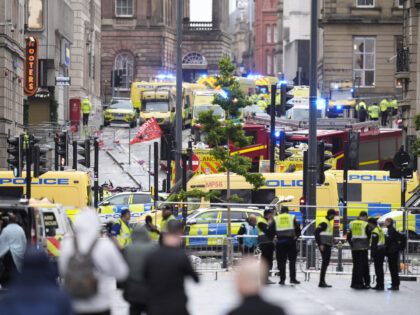
LIVERPOOL PARADE Panic: Car Slams Into Crowd, Kids Hurt in Shocking Scene
— A joyful day turned frightening when a car plowed into fans at the Liverpool FC victory parade. Police say it is not terrorism, but an “isolated event.” The driver, a 53-year-old British man, was arrested on the spot.
Four children were hurt — one seriously. In total, 27 people went to the hospital and 20 more got help for minor injuries right there.
Police are still figuring out if it was an accident or done on purpose. They have asked people not to jump to conclusions while they investigate.
Emergency crews rushed in as crowds watched in disbelief. Officers said they will keep working until they get answers about what caused this chaos.

— Trump’s Tax and Spending Bill Passes House. The legislation includes a $1,000 child credit but faces hurdles in the Senate amid criticism.
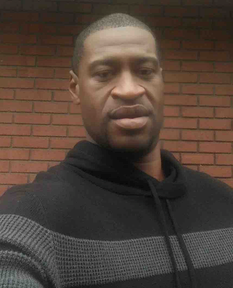
GEORGE FLOYD Anniversary Ignites Painful Anti-Police Protests in Minneapolis
— Thousands gathered in Minneapolis and Houston for the fifth anniversary of George Floyd’s death. Activists used the day to attack police and blame the Trump administration for blocking their goals.
Rev. Al Sharpton compared Floyd’s death to Emmett Till’s, calling both examples of racial injustice. Protesters at George Floyd Square put out a fake pig’s head with a police hat and held vigils demanding more changes to law enforcement.
Civil rights groups organized street festivals, concerts, and marches throughout the weekend. The events drew crowds calling for more police reform while repeating anti-police messages that have divided neighborhoods since 2020.
Many in these communities are left frustrated by leaders who push anti-police rhetoric instead of working toward real solutions that keep families safe.
US FACTORIES In PERIL: Shocking Slump Sparks Fear Across America
— America’s manufacturing sector is taking a hard hit. The latest numbers show the Purchasing Managers’ Index has dropped to 48.2. That’s below the line for growth and signals real trouble ahead. Factory orders have fallen for three months in a row, with new orders dropping 4.5% just in April.
Rising energy bills and supply chain messes are making life tough for manufacturers. Thousands of workers have lost their jobs in big industrial cities as companies warn profits could shrink even more if this keeps up.
Manufacturing stocks have taken a nosedive, dragging down the entire industrial market and shaking up investors across the country. Experts say if this slide continues, it could hurt jobs, slow down spending, and put America’s economy at risk.
With talk of a recession growing louder, everyone is watching to see what the Federal Reserve will do next about interest rates. Leaders are under pressure to make a move before things go from bad to worse.

SOUTHEAST ASIA Floods Spark Chaos: Millions in Fear as Homes Washed Away
— Severe floods and landslides have swept through Southeast Asia, pushing over 2 million people out of their homes. The death toll keeps rising, and local officials say the crisis is far from over.
Rescue teams are having a tough time reaching stranded families. Heavy storms and washed-out roads make every rescue mission risky for emergency workers.
Leaders warn that more bad weather could bring even greater hardship. Families who lost everything now face an uncertain future as they wait for help.
Damaged roads and bridges are slowing down relief efforts across the region. Many people worry that help may not arrive in time to save those still trapped by floodwaters.
CRYPTOCURRENCY SHOCK: Investor Arrested in Horrific SoHo Torture Case
— A New York crypto investor, John Woeltz, was arrested after police say he kidnapped and tortured an Italian tourist in a SoHo brownstone. Officers claim Woeltz and his group tricked the victim into coming from Italy with fake business promises. Once here, they held him for weeks to steal his crypto accounts.
The crime happened on Prince Street in Manhattan’s trendy SoHo area. Police charged Woeltz with assault, kidnapping, unlawful imprisonment, and having a gun without permission.
This disturbing case is raising alarm about rising crime linked to cryptocurrency deals in New York City.
Law enforcement warns that the dark side of digital currency is growing fast — and it’s getting harder for officials to keep up.

ISRAEL UNDER Fire: Shocking Human Shield Claims Spark Outrage In Gaza
— A Palestinian man says Israeli soldiers forced him to act as a human shield during raids in Gaza. He claims he was beaten, threatened, and made to enter homes first to check for danger. The Associated Press reports that both Palestinians and some Israeli soldiers say this is not a rare event.
An unnamed Israeli officer told AP that these orders sometimes come from higher up the chain of command. Many platoons are said to use Palestinians in this way during the ongoing conflict, which has dragged on for more than 19 months.
Israel’s military strongly denies these accusations. They say using civilians as shields is banned and not part of their rules or training.
Israeli officials also point out that Hamas often hides behind civilians and uses them as shields. They blame Hamas for most civilian deaths in Gaza, saying the terror group puts innocent people at risk on purpose.

TEXAS Manhunt ENDS in Shocking Serial Killer Arrest
— A suspected serial killer is finally behind bars after months of fear across Texas. Police arrested the 35-year-old man in Dallas County after a tense standoff. A sharp-eyed local tipped off officers when they spotted his car near a recent crime scene.
Investigators say DNA, clothes, and weapons found during a raid tied him to several murders. The suspect already has convictions for assault and theft.
He now faces multiple murder charges and is waiting for his first court appearance. Police are asking Texans to stay alert and share any tips that could help the ongoing investigation.
Officials hope this arrest will bring peace back to communities shaken by violence. The case is still making headlines as more details come out.

ARSON NIGHTMARE Rocks UK: Starmer’s Homes Targeted in Shocking Attacks
— A third person has been arrested after a string of arson attacks aimed at UK Prime Minister Keir Starmer’s homes. Police caught a 34-year-old man in Chelsea, London. He is accused of plotting fires that could have put lives at risk.
Earlier, police arrested Roman Lavrynovych, a 21-year-old Ukrainian national, and another man, age 26, who was stopped at Luton Airport. Both are accused of setting fires at places linked to the Prime Minister. The second suspect’s nationality is still unknown.
One fire broke out at Starmer’s private home in London and is being investigated by police right now. These attacks have raised serious questions about how well Britain protects its top leaders from danger.
Police say their investigation continues and more arrests may come soon as they work to keep the Prime Minister safe from this growing threat.

TRUMP’S Bold Farmer AID Plan Ignites Hope And Fear In Trade WAR Storm
— The Trump administration is looking at giving direct help to American farmers as trade fights heat up. President Trump’s new tariffs, like the 25% tax on imported cars, have made some worry about payback from other countries. Still, Trump stands firm and tells Americans to buy homegrown cars instead of imports.
Stock markets took a hit after the tariff news. Global shares dropped, and JPMorgan now says there’s a 40% chance of recession. UBS cut its outlook for the S&P 500 but still thinks stocks could rise by year’s end.
Some critics are upset with the White House for going after law firms that file “frivolous” lawsuits against the government. This has sparked debate over whether everyday Americans can still take legal action when they feel wronged.
At the same time, businesses that depend on immigrant workers want changes in immigration laws as deportations go up. Chinese tech investments and efforts by some groups to calm global tensions show how closely politics and business are tied together today.

RUSSIAN DRONE Strike Shocks Ukraine: Nine Innocents Killed After Peace Talks Fail
— A Russian drone attack killed nine civilians and wounded seven more in Ukraine’s Sumy region on May 17. The strike hit a bus carrying evacuees from Bilopillia, a town close to the Russian border. This deadly assault came just hours after peace talks in Istanbul fell apart, raising fears of even more violence ahead.
Russian President Vladimir Putin refused to join the negotiations, leaving no hope for a ceasefire despite a small prisoner swap. Former President Donald Trump called the situation a “bloodbath” and promised to reach out to both sides to help stop the fighting. Many Western leaders are now pushing for tougher sanctions on Russia and more aid for Ukraine.
People around the world are outraged by this attack on innocent lives. Photos from Bilopillia show families suffering, making it clear just how high the human cost of this war has become.
In contrast, India and Pakistan have agreed to a fragile ceasefire after U.S.-led talks — a rare bit of good news as global tensions keep rising elsewhere. The world is watching closely as Ukraine’s crisis grows worse by the day.

SHOCKING SECURITY Breach: Fire Erupts at UK PM’S Home as Spies Arrested, Labour In Chaos
— British police are investigating a suspicious fire at Prime Minister Keir Starmer’s London home. Officers arrested a suspect and say this is a serious security threat. The incident has raised new fears about safety around the Prime Minister.
In another alarming case, three Iranian men have been charged with spying after sneaking into the country illegally. Prosecutors say they helped Iran’s intelligence service and targeted journalists living in Britain. Officials admit this shows big problems with border control and asylum rules.
Prime Minister Starmer is also facing trouble inside his own Labour Party. Several MPs and local leaders have quit, accusing him of caring more about power than helping families or seniors. Former Labour MP Rosie Duffield slammed his leadership, saying he only listens to a small group of male advisers.
The government now says it will tighten immigration laws after public anger over rising migrant numbers. Even as Crystal Palace celebrated an FA Cup win against Manchester City, London festivals may be in doubt because of new legal fights.

RUSSIAN DRONE Attack Shocks Ukraine: Innocent Lives Lost After Failed Peace Talks
— Nine innocent Ukrainians were killed and seven more wounded when a Russian drone struck a bus in Bilopillia. The attack came just hours after peace talks in Turkey broke down. The victims were evacuees trying to escape the violence.
The failed talks fell apart because Russian President Vladimir Putin refused to attend. This latest strike shows how fragile peace is and how quickly the situation can get worse. Many are now pushing for new talks as fighting grows.
Former President Donald Trump says he plans to speak with leaders from both sides to help calm things down. But for now, the crisis is only getting worse, with more civilians caught in the crossfire.
Major news outlets like CNN and BBC have shown images of the destruction, raising fears across Europe that this war could spread even further. The world waits anxiously as Ukraine faces another tragic loss.
HORRIFIC RUSSIAN Drone Strike Shatters Hope After Peace Talks Fail
— A Russian drone attack killed nine innocent Ukrainians and wounded seven more in the Sumy region on Saturday. The strike hit a bus carrying evacuees from Bilopillia, just six miles from the Russian border. This deadly assault happened only hours after peace talks between Russia and Ukraine broke down in Turkey.
The negotiations ended with no ceasefire, as Russian President Vladimir Putin skipped the meeting. Former President Donald Trump announced he plans to speak with both leaders, hoping to calm tensions as outrage grows over the attack.
Photos from the scene show first responders digging through rubble and helping survivors. The tragedy has sparked fears that fighting will drag on even longer, showing how weak current peace efforts are.
In contrast, India and Pakistan reached a ceasefire deal along Kashmir — confirmed by Trump — bringing hope for stability there while violence rises again in Eastern Europe.
PUTIN’S Shocking Rejection: Ukraine Peace Hopes Shattered
— Russian President Vladimir Putin has crushed hopes for peace by rejecting the latest Ukraine deal. His decision sparked outrage and left many wondering if the war will ever end.
World leaders quickly condemned Putin’s move, calling it a huge blow to peace efforts. Even with tough sanctions and pressure, Russia refuses to back down or make any deals.
Officials have not shared much about what was in the rejected plan, but Ukraine and its allies wanted real steps toward stopping the fighting. Now, countries are scrambling to figure out what to do next as tensions get worse.
This story is changing fast as diplomats rush to find new ways forward after Putin’s stunning rejection of peace talks.
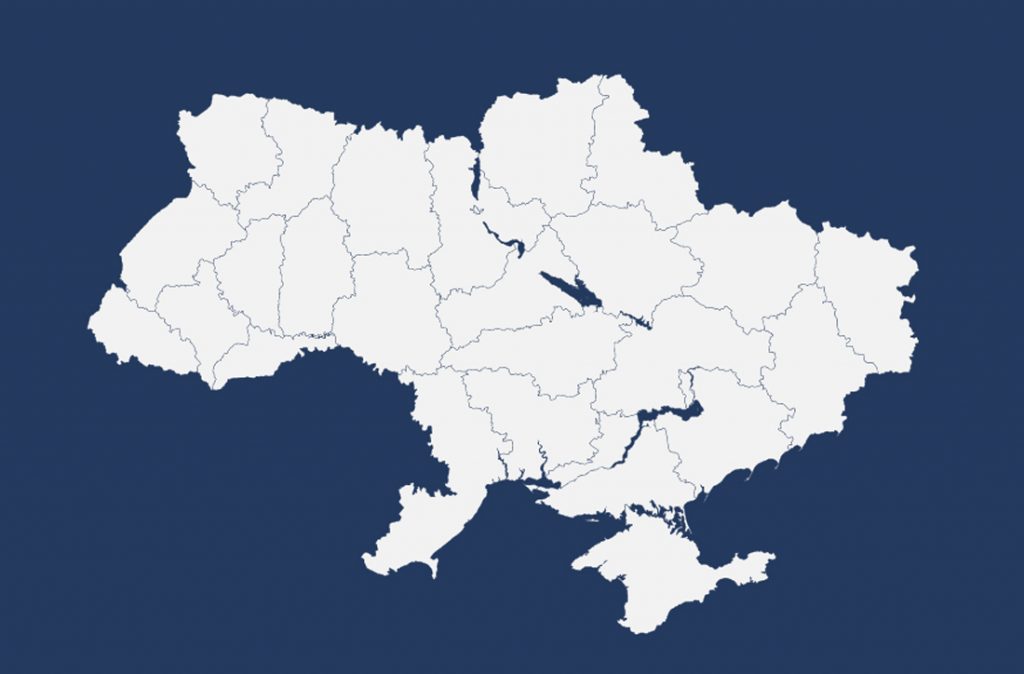
RUSSIAN DRONE Strike Shocks Ukraine: Innocent Lives Lost After Peace Talks Collapse
— A Russian drone strike killed nine innocent people and wounded seven more in Ukraine’s Sumy region on Saturday. The attack hit a bus carrying evacuees from Bilopillia, just six miles from the Russian border.
Ukrainian President Zelenskyy called it a “deliberate killing of civilians.” He blamed Russia for refusing to agree to a ceasefire during recent peace talks. British officials also condemned the strike and urged Russia to stop its aggression.
Local leaders declared a period of mourning until Monday, calling it “Black Saturday.” The injured were taken to the hospital in Sumy as families mourn another painful loss.
This tragedy shows once again how dangerous failed diplomacy can be. Many now wonder if true peace is possible when one side refuses to stop the violence.

PENNSYLVANIA HOSPITAL Horror: Hero Officer Gunned Down, Staff Wounded In Shocking Attack
— A gunman stormed UPMC Memorial Hospital in Pennsylvania on May 15, 2025. Officer Andrew Duarte was shot and killed while responding to the chaos. Several hospital workers were also hurt before police stopped the attacker.
Officers acted fast and shot the suspect dead at the scene. Their quick action likely saved many lives and kept more people from getting hurt.
After the shooting, police set up a strong presence outside as emergency crews rushed in to help. Investigators are now looking into why this happened and how security can be improved.
This attack shows just how much danger first responders and medical staff face today. Many conservatives say it’s time for tougher steps to protect our police, hospitals, and communities from violent crime.

ARSON PANIC Rocks UK: Starmer’s Home Targeted in Shock Attack
— A man has been arrested after fires broke out at places linked to UK Prime Minister Keir Starmer, including his private home in London. Police are calling the incident suspicious and have started a full investigation.
Starmer called the attack an “attack on our democracy.” British officials are taking this threat to political leaders very seriously. The story is making major headlines across the country.
Security for government leaders is now under the spotlight. Many people are asking if political tensions in Britain are getting worse and what this means for public safety.
The police investigation is still active. More information will come out as detectives and government officials share new details.
![500+ Melbourne Pictures [Stunning!] Download Free Images on Unsplash](https://plus.unsplash.com/premium_photo-1733317293766-5606f74b765b?fm=jpg&q=60&w=3000&ixlib=rb-4.1.0&ixid=M3wxMjA3fDB8MHxzZWFyY2h8MXx8bWVsYm91cm5lfGVufDB8fDB8fHww)
JAMES COOK Statue Destruction Sparks RAW Anger In Australia’S Culture WAR
— A city council in Melbourne, Australia, has decided not to fix a vandalized statue of British explorer James Cook. The monument was broken and covered with anti-colonial graffiti after Australia Day, which some activists now call “Invasion Day.” Critics blame Cook for Britain’s settlement of Australia and have targeted his statue many times.
Mayor Stephen Jolly said the council voted against spending $9,700 to repair the statue again. He claimed the choice was about saving taxpayer money, not giving in to activists or picking sides in culture battles.
“It costs us AU$15,000 every time we fix it and it keeps getting destroyed or defaced,” Jolly told Australian Broadcasting Corp. The damaged monument is now sitting in storage as arguments over national history grow louder.
Many Australians see this as another sign that radical activists are erasing history instead of learning from it — leaving communities divided over what should be remembered and honored on public land.
AMERICAN DIPLOMACY Stops Bloody Border WAR: Hope Rises as India-Pakistan Ceasefire Holds
— India and Pakistan have agreed to stop fighting after weeks of deadly clashes along their tense border. The United States stepped in, with Secretary of State Marco Rubio and Vice President J.D. leading the talks to calm things down. This deal aims to keep two nuclear-armed countries from going to war.
Kashmir has been a trouble spot for decades, with both nations claiming it but only controlling parts. The latest violence had many worried that a bigger conflict could break out, putting millions at risk.
Thanks to strong U.S. leadership, both sides sat down for talks and agreed on a ceasefire. While this truce is meant to end the shooting and start real peace talks, some doubt it will last long.
The world is watching closely because of fears about nuclear weapons and unrest in South Asia. For now, America’s tough approach has brought hope that peace can hold in one of the world’s most dangerous places.

SNOW DELAY Sparks Outrage in O’Keefe Case: Critical Evidence at Risk?
— Questions are swirling around the John O’Keefe case after Massachusetts State Police Sgt. Evan Brent testified about how evidence was found at the scene. Some items were sitting on melting snow, while others were hidden deeper below. Brent said that warmer weather and rain caused snow to melt, revealing new evidence days after O’Keefe’s death.
Defense attorney David Yannetti pointed out a troubling five-day gap between when O’Keefe died and when Brent took photos of the scene. “You were photographing it five days after Jan. 29, 2022, correct?” Yannetti pressed. “Yes, sir,” Brent answered.
This delay is raising serious concerns about how police handled key evidence in this high-profile case. Defense lawyers often use these gaps to question whether officers protected important details needed for a fair trial.
The public is now left wondering if justice can truly be served when critical steps are missed or delayed by law enforcement during an investigation this important.
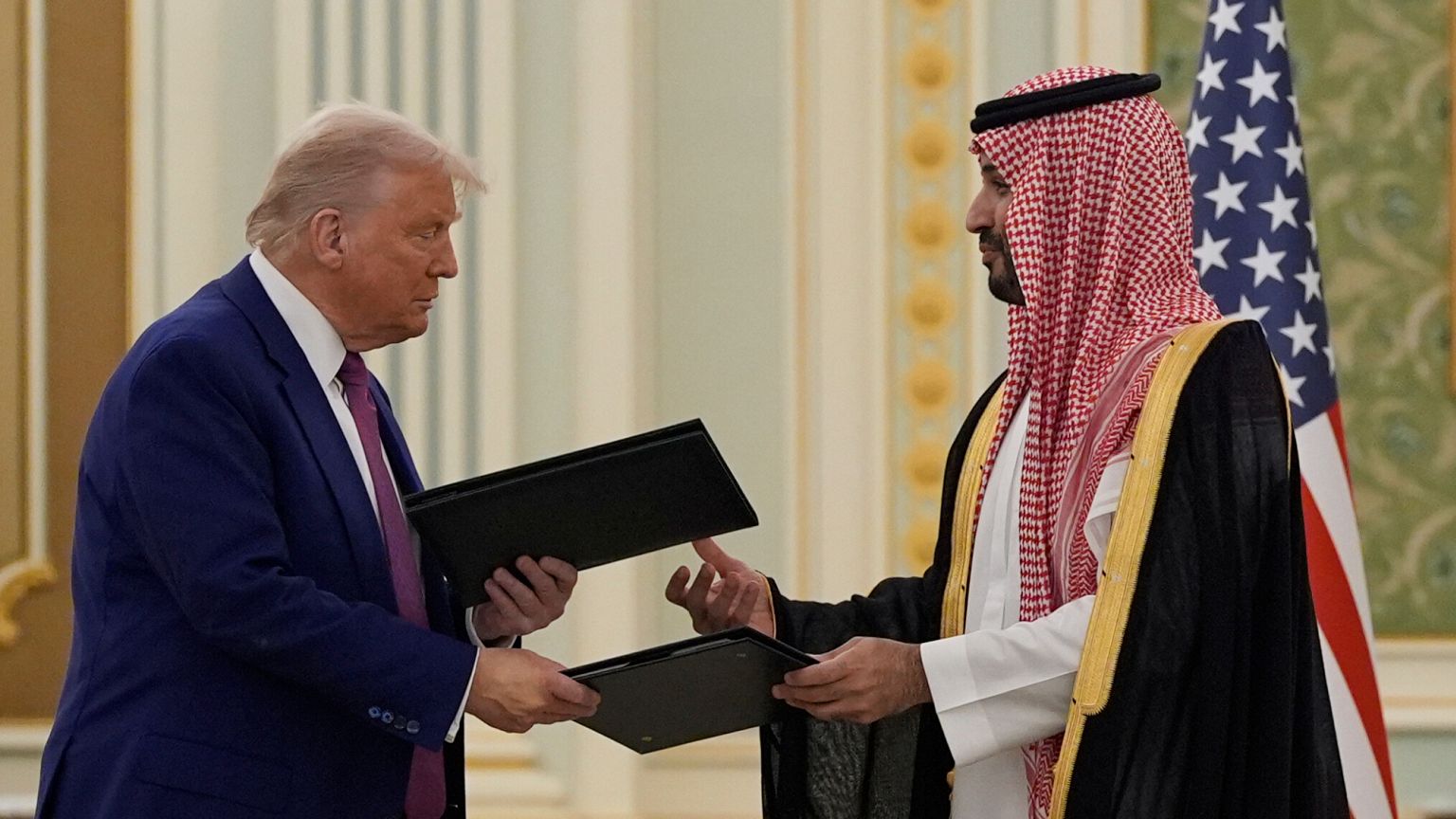
TRUMP’S $142 Billion Saudi Deal Ignites Fury And Hope In Middle East
— Former President Donald Trump is making waves again with a massive $142 billion arms deal with Saudi Arabia. During his visit, Trump also said he wants to lift some U.S. sanctions on Syria. These bold moves signal a big change in America’s Middle East strategy and show stronger defense ties with Saudi Arabia.
Trump’s actions are getting worldwide attention. Supporters say this could help the U.S. rebuild trust with important allies and push back against weak foreign policy from the Biden administration.
Critics worry about the risks, but many conservatives see this as putting America first and standing up for our interests overseas.
In other news, a British man was freed after 38 years in prison for a crime he didn’t commit, raising calls for legal reform in the UK. In America, Sean “Diddy” Combs faces trial on sex trafficking charges, Newark Mayor Ras Baraka was arrested at an ICE protest, and California Governor Gavin Newsom announced new homelessness policies that are already stirring debate.

TRUMP’S Trade WAR Truce Sparks Surge in Asian Markets
— Asian stocks soared Tuesday after the U.S. and China agreed to a 90-day pause in their trade war. Both nations announced big tariff cuts. U.S. tariffs on Chinese goods dropped from as high as 145% to 30%. China lowered its tariffs on American products from 125% to just 10%.
This truce gives both sides more time for talks after meeting in Geneva. Experts say the deal was better than expected and calmed investors, but warn President Trump could still change course if needed.
Japan’s Nikkei index jumped nearly 2%. Automakers like Toyota and Suzuki led the gains, while Nissan shares rose too after news about major layoffs tied to restructuring.
South Korea’s Kospi index edged up by 0.2%. Investors are still careful about long-term risks, but for now, markets are responding with relief and optimism.

NEW JERSEY Mayor’S Shocking ICE Arrest Ignites Fury In Immigration Battle
— Newark Mayor Ras Baraka, a Democrat and candidate for governor, was arrested by federal agents outside a New Jersey ICE detention center on Friday. Baraka refused to leave during a protest and was charged with trespassing. His arrest has angered progressives but sparked praise from conservatives who say he tried to block federal law enforcement.
This comes as the Trump administration steps up immigration enforcement across the country. Over 100 people were arrested in Tennessee as part of President Trump’s expanded deportation plan. Left-wing groups protested, while sanctuary city leaders continue to clash with federal authorities.
In other major legal news, Sean “Diddy” Combs faces ongoing court cases, and the Alexander brothers have been hit with new sex trafficking charges. The Supreme Court also brought back Ohio’s ban on gender-affirming care for minors, and a late-term abortion clinic was ordered to close by a federal judge.
Violence is rising nationwide, including stabbings at UC Berkeley and schools, plus a deadly tour van crash near Yellowstone. Meanwhile, reports say the White House may suspend habeas corpus for immigration enforcement as worries about public safety grow across America.
DIDDY TRIAL Shocker, Mayor Arrested, Rikers Seized: America’s Justice System in Turmoil
— Sean “Diddy” Combs is facing a sex trafficking trial in Manhattan. The case includes tough claims and testimony from Cassie Ventura. Diddy’s lawyers admit he lost his temper at times but say he did not break federal laws.
Newark Mayor Ras Baraka was arrested for trespassing while protesting ICE at a detention center. His arrest has sparked heated debate about immigration enforcement and the role of local leaders.
Rapper Tory Lanez was stabbed 14 times in a California prison and is still in the hospital. In New Jersey, two people died after a suspicious house explosion, leading police to open a criminal investigation.
Elsewhere, Illinois convicted a man of hate crime for killing a Palestinian American boy. The Menendez brothers are asking for new sentences in their famous case. Police are also looking into a tragic Mother’s Day murder-suicide by a small-town father. A judge has now taken over New York City’s Rikers Island jail after more violence broke out inside the facility.

US-CHINA TRADE WAR Pause Stuns Markets, Sparks Hope and Fear
— The United States and China agreed to a 90-day pause on tariffs. This move gives American businesses that depend on Chinese goods a break, but many are unsure how long this peace will last. Experts say the main trade problems are still not solved.
In other news, former President Trump’s plan to use a Qatari luxury jet instead of Air Force One is facing backlash. Critics raise concerns about security and possible foreign influence. At the same time, his administration allowed 59 white South Africans to enter as refugees, which caused debate since most refugee resettlements were on hold.
McDonald’s plans to hire 375,000 US workers this summer. This shows strong demand from customers and positive signs for the job market. Meanwhile, House Republicans want $5 billion for private school vouchers — keeping school choice in the spotlight.
Tourism leaders worry about slower revenue as economic worries grow. On a brighter note, new steps against invasive carp could help protect the $7 billion Great Lakes fishing industry from more damage.

WORLD In CHAOS: Border Bloodshed and Outrage Shake Global Stability
— Fresh violence broke out on the INDIA-PAKISTAN border just hours after leaders promised a ceasefire. Both sides blame each other for breaking the truce, leaving families in Kashmir trapped in danger. The U.S. and other countries are asking for calm, but peace looks shaky.
In POLAND, thousands took to the streets to protest illegal immigration before the presidential election. Nationalists led chants of “no to immigration,” blaming Russia and Belarus for sending migrants into Europe. The Law and Justice party’s candidate is gaining support with his strong border stance.
ISRAEL is under fire from aid groups over how it handles humanitarian help in Gaza as conditions get worse for Palestinians. In a bold move, EL SALVADOR has offered to house U.S. prisoners if America pays — raising eyebrows as the U.S. struggles with crowded jails.
Other world news: Ukraine’s President Zelensky called out Putin for direct talks, while Donald Trump pushed for new peace talks between Ukraine and Russia. Headlines also include a Vatican call for peace, White House jet deals with Qatar, a Soviet spacecraft re-entry scare, Taliban banning chess over gambling fears, and even a strange hermit crab smuggling case making waves worldwide.
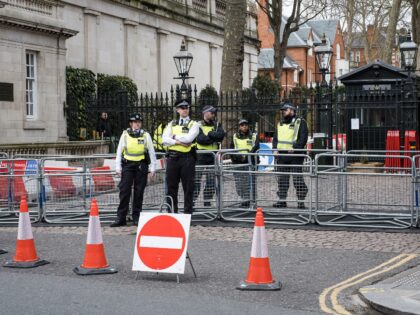
UK TAXPAYERS SHOCKED: Iranian Suspect In Israel Embassy Plot Housed For Free
— British police arrested five Iranians this month, suspecting them of planning a terror attack on the Israeli embassy in London. One of the men, age 40, had lived for over six months in a taxpayer-funded home in Rochdale run by Serco.
Reports say he crossed into the UK illegally from France by boat and then claimed asylum. Neighbors said migrants living there paid nothing for rent or bills — everything was covered by taxpayers.
Terrorism expert Anthony Glees called the Calais boat route a “clear and present danger” to national security. He said warships — not lifeboats — should meet migrants at the border to protect Britain.
Serco has tried using more private homes for asylum seekers instead of expensive hotels. But this plan has raised worries about safety and put more strain on local housing markets already under pressure.

$18 BILLION Tariffs SHOCK China: Biden’s Risky Trade WAR Hits Home
— The Biden administration just hit China with $18 billion in new tariffs. Officials claim it’s a response to unfair trade from Beijing. This move is supposed to get tough on China, but it could mean higher prices for American families and businesses.
Harvard University is now suing the Trump administration over policy disagreements. The details are still coming out, but this shows how elite schools keep fighting against conservative leaders. Many on the right say Harvard pushes a leftist agenda.
World leaders also released a statement about using artificial intelligence in war. They want rules to control AI and keep things safe as technology gets more powerful in the military.
All these stories show how Washington is battling over trade, education, and national security — issues that matter for every American household.

LONDON SHOCK: Iranian MEN Caught in Bold UK Counterterror Raid
— Several Iranian men were arrested by UK police in London during a major counterterrorism raid. Officers believe the suspects were planning an attack. They are now being questioned by authorities.
Officials have not shared details about the possible target or location, saying the investigation is still active. Security services stressed they are always on alert for threats like this.
This case shows the real danger posed by foreign nationals and highlights why strong intelligence and law enforcement matter to keep British citizens safe.
Authorities say more information will be released as soon as it becomes available. For now, they urge everyone to stay aware and trust that security teams are working hard to protect the public.
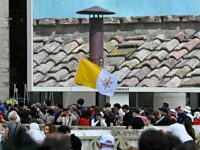
POPE VOTE Shocker: Cardinals Deadlocked as World Waits in Suspense
— Black smoke rose above St. Peter’s Square Wednesday night. Catholic cardinals could not agree on a new pope after their first vote, leaving millions watching and waiting for answers.
A total of 133 cardinals from 66 countries gathered behind closed doors. They are cut off from the outside world and must keep everything secret or risk excommunication.
The cardinals spent the night at the Santa Marta guesthouse. On Thursday morning, they attended a private mass before getting ready for another round of voting.
If no one gets a two-thirds majority in the next ballot, more votes will follow until someone is chosen. This process can take days, just like when Benedict XVI and Francis were elected. The world now waits to see who will lead 1.4 billion Catholics next.

FORD’S $15 Billion Trade WAR Shock: How Trump’s Tough Tariffs Rattled the Auto Giant
— Ford Motor Company just hit the brakes on its earnings forecast. The company says tariffs from President Trump’s trade war could cost Ford a whopping $15 billion. Profits have already dropped 64% in the first quarter, and Ford blames these tariffs for most of the pain. Other carmakers may face over $100 billion in extra costs too.
To dodge some of these fees, Ford started sending cars from Mexico to Canada using special bond carriers. This helps avoid certain tariffs but doesn’t solve everything. By suspending its guidance, Ford is telling investors things are shaky and uncertain.
The Federal Reserve chose not to raise interest rates this time. Leaders pointed to risks from trade fights and older tariff rules as reasons for their caution. Big banks like Goldman Sachs also warned about possible trouble ahead for Wall Street.
There is some good news for global trade, though. A fresh deal between the U.S. and UK will remove steel and aluminum tariffs while cutting car taxes down to 10%. This agreement — first set up under President Trump — could help cool off some tensions even as other problems remain unsolved.
HERO Officer KILLED in Pennsylvania Hospital Shooting Sparks Outrage
— A tragic shooting broke out at UPMC Memorial Hospital in York, Pennsylvania, on February 22, 2025. The gunman, Diogenes Archangel-Ortiz, stormed the ICU with a semi-automatic handgun and zip ties. He took several hospital staff hostage before police ended the standoff by shooting him. Officer Andrew Duarte of the West York Borough Police Department was killed during the attack.
Five others were hurt — three hospital workers and two police officers — but all are expected to recover. Reports say the shooter’s motive was linked to personal grief after losing someone at the hospital.
Officer Duarte had only been on duty for a month when he lost his life protecting others. Local leaders and residents called him a hero who made the ultimate sacrifice. Governor Josh Shapiro condemned the attack as “the act of a coward” and ordered flags lowered to half-staff.
The hospital is closed to visitors as police investigate what happened. This tragedy adds to growing fears about rising violence targeting hospitals across America this year.
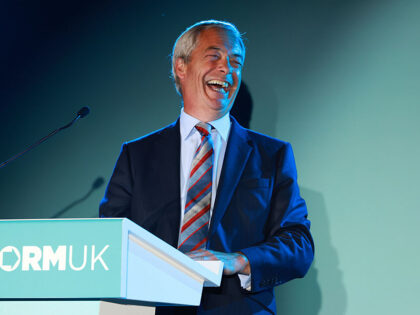
REFORM UK’S EARTHSHAKING WIN: Voters Reject Old Parties in Historic Election
— Nigel Farage celebrated Friday night as his REFORM UK party scored big wins in local elections across England. Reform took control of ten councils, won two mayor races, a parliamentary byelection, and grabbed 677 council seats. The BBC said if these results happened nationwide, Reform could lead the next government.
Farage called it a “Reformquake” and told supporters this was a “truly historic landmark” for Britain. For decades, Labour and Conservatives have ruled politics. Now both parties are stunned by Reform’s surge.
Farage promised real change for local government. He warned council workers focused on “climate change initiatives or diversity equity and inclusion” to look for new jobs. Reform campaigned hard on national issues like stopping illegal migration and ending taxpayer-funded migrant housing.
Voters fed up with establishment politics backed Reform’s message. Farage says the party will use this momentum to push even harder at the next General Election — hoping to make history once again.

YELLOWSTONE TRAGEDY Shocks Nation: Seven Killed in Tour Van Inferno
— Seven people lost their lives and eight were hurt after a fiery crash near Yellowstone National Park Thursday night. Idaho State Police say a Dodge Ram pickup slammed into a Mercedes tour van on U.S. Highway 20, close to Henry’s Lake State Park.
Both vehicles burst into flames after the collision. The truck driver, Isaih Moreno from Texas, died at the scene along with six passengers from the van. Most of those killed were foreign visitors.
China’s Consulate confirmed five Chinese citizens died in the accident, and eight others were injured. Local officials also said two Italians were among those who lost their lives.
Investigators are still looking into what caused this heartbreaking wreck. The tragedy has shaken both local families and tourists visiting America’s most famous national park.

PRINCE HARRY’S Police Protection Loss Sparks Outrage in UK Court
— Prince Harry’s fight with the royal family and the British press is making headlines again. After he left royal duties in 2020 and moved to America, he lost his taxpayer-funded police protection in the UK. A court just ruled against Harry’s request to get this security back. In a recent interview, he blamed harsh media coverage of his wife, Meghan Markle, saying it had “racial undertones.” He also compared it to how reporters treated his mother before her tragic death. Harry isn’t stopping there. He has filed lawsuits against big newspaper companies. He claims they used illegal tricks like hacking and lying to dig up stories about him. These legal battles are far from over. Prince Harry seems ready for a long fight with both the press and his family.
Harry’s life with Meghan Markle has been under a microscope since the start. He’s spoken out against what he calls “racial undertones” in the press and often shares worries about Meghan’s safety. Their wedding at Windsor Castle only made the spotlight brighter.
Since leaving, Harry has sued several big newspapers, saying they used illegal tactics like hacking to dig into his private life. He believes these invasions are similar to what led to Princess Diana’s tragic death — something that still haunts him today.

US TAXPAYERS FED UP: Bold Bill Demands UN PAY Fair Share in Somalia WAR
— Three Republican senators have introduced a bill to block U.S. funding for Somalia’s fight against Islamist terror unless the United Nations, European Union, and African Union step up their own support. The “African Union Support and Stabilization Mission in Somalia (AUSSOM) Funding Restriction Act of 2025” aims to protect American tax dollars and make global partners pay their “fair” share.
Senator Jim Risch told Fox News Digital the bill is meant “to safeguard U.S. taxpayer funds and hold the U.N. and A.U. accountable in African peace operations.” The law would also require America to oppose any United Nations Security Council move that asks for more U.S. money for these missions.
Somalia has suffered years of violence from ISIS and al-Shabab terrorists, with recent U.S. airstrikes hitting both groups over just five weeks. President Trump ordered strikes on ISIS leaders in Somalia during his time in office, showing how involved America has been in keeping the region secure.;
TRUMP’S Bold Justice: Death Penalty Demanded in CEO Murder Shocker
— Federal prosecutors will seek the death penalty for Luigi Mangione, who is accused of killing UnitedHealthcare CEO Brian Thompson outside a New York City hotel. Attorney General Pam Bondi says this is the first federal death penalty case under President Trump’s push to crack down on violent crime. Mangione faces both federal and state charges, sparking strong debate over capital punishment.
Violent crime is rising across North America. A mass shooting in Myrtle Beach left several dead, and a firefighter paramedic was stabbed to death in Missouri. In Canada, a violent rampage in Vancouver has caused outrage and heated political talk.
Police also arrested an ISIS suspect tied to a Bourbon Street terror attack in New Orleans. These crimes have led many Americans to call for tougher security as worries about public safety grow.
Other legal news: A judge blocked parts of a new immigration bill, and cruise lines are skipping stops due to gang violence. The Karen Read murder trial continues with jurors visiting the scene and lawyers battling it out in court.

US-UKRAINE MINERALS Deal Ignites Hope for Trump’S Strong Support
— The United States and Ukraine have signed a new deal giving America access to Ukraine’s key minerals. Ukrainian leaders say this version is better for them than past drafts, which would have made Ukraine less of an equal partner. The agreement still needs approval from Ukraine’s parliament.
The deal also sets up a fund to help rebuild Ukraine. Kyiv hopes this will secure more U.S. military aid in the future. A similar agreement almost happened before but was stopped during tense talks with President Trump, Vice President JD Vance, and President Zelenskyy.
Secretary of State Marco Rubio called this week “very critical” for ending the war in Ukraine. Treasury Secretary Scott Bessent said the deal sends Russia a clear message: The Trump administration stands by a free and independent Ukraine.
Ukraine sees this as an important move to keep America as its top ally against Russia’s invasion. Now all eyes are on whether Kyiv’s lawmakers will approve the plan.
FLORIDA HERO Cops Save DAY: Rogue Boat Drama in Deadly Storm
— Florida police stopped a rogue boat during dangerous weather, but officials have not shared where it happened or why the boat was out of control. This comes as storms and floods slam Oklahoma and Texas, raising safety worries across the country.
No injuries or property damage have been reported from the boat incident. Still, this reminds us how tough it is for first responders to keep people safe when wild weather hits.
After the Surfside condo collapse, Florida lawmakers passed tougher building safety laws to protect families. Safety stays front and center as states battle new emergencies every week.
We’ll bring you updates as soon as more details come out about this breaking story in Florida.
ILLINOIS CAMP Heartbreak: Four Children Killed In Shocking CAR Crash
— Four children lost their lives when a car slammed into an after-school camp in Illinois. Several others were hurt. Police are still looking into what caused this tragic crash, which has left families and neighbors devastated.
Elsewhere, the DEA arrested over 200 people in Colorado after raiding a nightclub for illegal late-night activity. Federal prosecutors say they will seek the death penalty for Luigi Mangione, who is accused of killing UnitedHealthcare CEO Brian Thompson.
In Missouri, a paramedic firefighter was stabbed to death by a patient during an ambulance ride. Officials called it “unfathomable.” Myrtle Beach also faced tragedy as a mass shooting left one dead and 11 injured, raising more fears about public safety.
The Supreme Court turned down Karen Read’s appeal in her high-profile case. In Florida, police are investigating a deadly hit-and-run boat crash near Clearwater Ferry. On another front, the EPA approved summer sales of cheaper E15 gasoline across the country to help drivers save money at the pump.
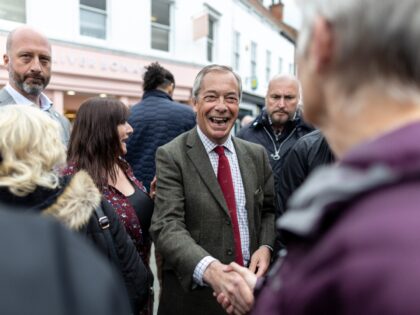
REFORM Party SHOCKS Britain: Voters Abandon Old Parties in Desperate Move
— Britain’s two main parties are losing their grip. Sir John Curtice, a top pollster, says the country’s political system is breaking down as five parties now fight for votes. Nigel Farage’s REFORM Party is gaining support from both Labour and Conservative voters fed up with the status quo.
Recent polls show REFORM surging as people worry about rising costs and unchecked migration. Fewer than half of voters plan to back Labour or the Conservatives — a record low. Curtice predicts REFORM could win hundreds of seats in Thursday’s local elections, even though they’ve never run such a big campaign before.
REFORM has put forward more candidates than any other party this time — a major win for their team. They’re focusing on working-class communities who feel left behind by Labour’s new focus on city elites and multicultural policies.
This election is the first big challenge for Prime Minister Keir Starmer since his left-wing government took power last July. Only about a third of councils are voting now, with many elections delayed until next year.;

TRUMP DOJ Demands Justice: Death Penalty Pushed in Shocking Unitedhealthcare CEO Murder
— U.S. Attorney General Pam Bondi is ordering federal prosecutors to seek the death penalty for Luigi Mangione. He stands accused of killing UnitedHealthcare CEO Brian Thompson outside a New York City hotel in December 2024. This move follows President Trump’s call to bring back capital punishment for the worst federal crimes.
Mangione faces both state and federal murder charges. The federal case includes murder with a firearm, which could mean execution if he is found guilty. New York law doesn’t allow the death penalty, so state charges carry a maximum sentence of life in prison.
Bondi says this prosecution supports Trump’s promise to crack down on violent crime and “Make America Safe Again.” The Department of Justice also said Mangione’s actions were planned and put innocent people at risk.
This is one of the first major death penalty cases since Trump ended the pause on executions. Even though Mangione pleaded not guilty at the state level, his fate will be decided in court as Americans watch closely.
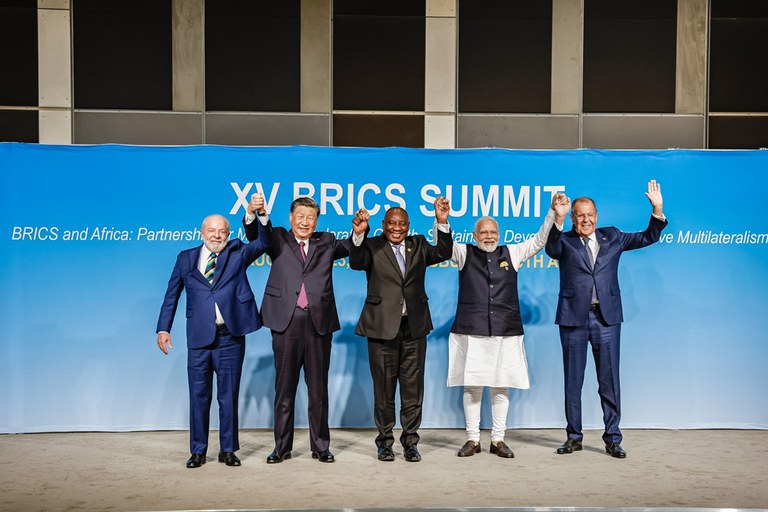
BRAZIL’S Bold Gamble: Global Power Play Ignites Trade WAR Fears
— Brazil is grabbing the world’s attention as it gets ready to host the BRICS summit in July 2025. President Lula da Silva is leading a busy schedule, with plans for a regional meeting in Honduras, an official visit to France, and support for peace talks between Russia and Ukraine during his trip to Portugal.
These moves come at a tense moment. President Trump has warned he may slap new tariffs on Russian oil if there’s no deal over Ukraine. Meanwhile, China is trying to pull Latin America closer through its CELAC forum, hoping to boost its influence in the region.
Brazil’s active diplomacy shows it wants a bigger role on the world stage. The country hopes to act as mediator between major powers like the US, Russia, and China while pushing for stronger ties in Latin America.
With trade wars looming and global tensions rising, Brazil’s bold approach could shape how these big issues play out — or backfire if things go wrong.

PUTIN’S Easter Ceasefire Shattered: Deadly Betrayal Leaves Ukraine in Mourning
— Three people were killed in Ukraine’s Kherson region during what was supposed to be a 30-hour Easter ceasefire announced by Russian President Vladimir Putin. Ukrainian leaders say Russian forces kept attacking, with President Zelenskyy reporting over 2,900 violations and hundreds of drone strikes during the truce.
Russia denies breaking the agreement. The Russian Defense Ministry claims its troops “strictly observed the ceasefire” and did not push forward. Instead, Moscow accuses Ukraine of nearly 5,000 violations.
Putin says fighting only started again after the truce ended. Meanwhile, Zelenskyy is calling for a longer peace or at least an end to attacks on civilians — something Russia says will only happen if Western countries stop sending weapons to Ukraine.
The back-and-forth blame shows just how little trust remains between Moscow and Kyiv. Both sides point fingers as innocent lives are lost — even on sacred holidays.
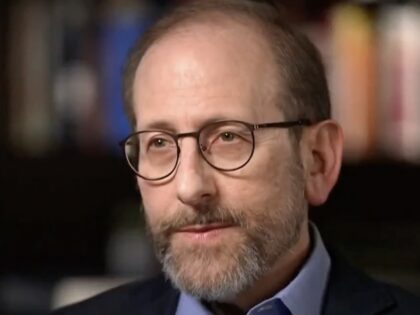
HARVARD President’s CHILLING Warning: White House Wants to Control Who Gets In
— Harvard President Alan Garber says the Biden White House is trying to take charge of who gets hired and admitted at the school. He warns this could limit what people are allowed to say on campus.
Garber told NBC’s Lester Holt that Harvard is standing up for American universities, which he says are important for our economy and way of life. He was asked how much pressure Harvard can handle from Washington. Garber said they cannot give up on protecting free speech.
He admitted he isn’t sure if Harvard can win this battle, but said the stakes are too high to walk away now.
For years, conservatives have called out elite schools like Harvard for pushing one-sided views and shutting out other voices. Now, with possible government control in play, many worry things could get even worse.

PUTIN’S Fake Ceasefire Sparks Outrage As Attacks Rock Ukraine
— Russian President Vladimir Putin announced a 30-hour Easter ceasefire, but deadly attacks still hit the Kherson region. Ukrainian officials say three people were killed and three more hurt during what was supposed to be a truce. The head of Kherson’s administration, Oleksandr Prokudin, shared these numbers with the public.
Ukrainian President Volodymyr Zelenskyy accused Russia of breaking the ceasefire over 2,900 times. He said Russian forces kept up shelling and drone strikes along the front lines. Zelenskyy told his people that “actions always speak louder than words” and promised Ukraine would only stay silent if Russia did too.
Russia’s Defense Ministry pushed back, blaming Ukraine for 4,900 violations instead. They claimed Moscow’s troops “strictly observed the ceasefire.” But as soon as midnight hit and the truce ended, fighting picked right back up across both sides.
Putin says he’ll only agree to a real ceasefire if Western countries stop sending weapons to Kyiv and if Ukraine stops calling up new soldiers — terms Ukraine flatly rejects. With both sides pointing fingers and refusing to budge, this war looks far from over.

Video
US STEEL SHOCK: Government Grabs Control in Nippon Deal
— The U.S. government will keep tight control over U.S. Steel after Japan’s Nippon Steel agreed to buy the company for $14.9 billion. Senator Dave McCormick says a “golden share” gives Washington veto power over big decisions, easing fears about foreign ownership and national security.
The agreement promises an American CEO, a mostly U.S.-based board, and direct federal oversight of key operations. Nippon Steel also plans to invest $2.4 billion to upgrade plants and create thousands of jobs in Pennsylvania, giving local industry a boost.
President Trump now backs the deal — as long as headquarters stay in Pittsburgh and American control is locked in by the golden share rule. He called it an “investment” that keeps power with the USA, hoping this will calm critics from both parties.
Still, some lawmakers are wary about letting any foreign company near such a vital industry. Many are watching this deal closely as it could become a blueprint for protecting American interests during future foreign takeovers of important companies.
